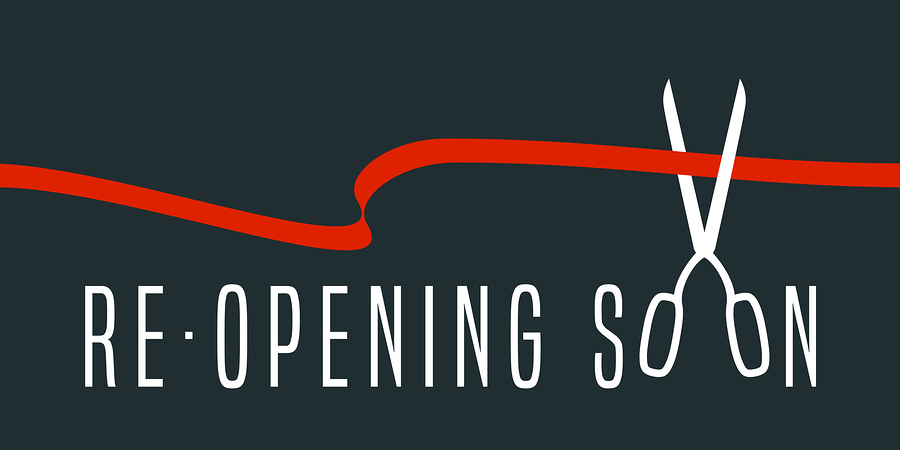
Negotiating the Price Gap Between Buyers and Sellers

Sellers generally desire all-cash transactions; however, oftentimes partial seller financing is necessary in typical middle market company transactions. Furthermore, sellers who demand all-cash deals typically receive a lower purchase price than they would have if the deal were structured differently.
Although buyers may be able to pay all-cash at closing, they often want to structure a deal where the seller has left some portion of the price on the table, either in the form of a note or an earnout. Deferring some of the owner’s remuneration from the transaction will provide leverage in the event that the owner has misrepresented the business. An earnout is a mechanism to provide payment based on future performance. Acquirers like to suggest that, if the business is as it is represented, there should be no problem with this type of payout. The owner’s retort is that he or she knows the business is sound under his or her management but does not know whether the buyer will be as successful in operating the business.
Moreover, the owner has taken the business risk while owning the business; why would he or she continue to be at risk with someone else at the helm? Nevertheless, there are circumstances in which an earnout can be quite useful in recognizing full value and consummating a transaction. For example, suppose that a company had spent three years and vast sums developing a new product and had just launched the product at the time of a sale. A certain value could be arrived at for the current business, and an earnout could be structured to compensate the owner for the effort and expense of developing the new product if and when the sales of the new product materialize. Under this scenario, everyone wins.
The terms of the deal are extremely important to both parties involved in the transaction. Many times the buyers and sellers, and their advisors, are in agreement with all the terms of the transaction, except for the price. Although the variance on price may seem to be a “deal killer,” the price gap can often be resolved so that both parties can move forward to complete the transaction.
Listed below are some suggestions on how to bridge the price gap:
- If the real estate was originally included in the deal, the seller may choose to rent the premise to the acquirer rather than sell it outright. This will decrease the price of the transaction by the value of the real estate. The buyer might also choose to pay higher rent in order to decrease the “goodwill” portion of the sale. The seller may choose to retain the title to certain machinery and equipment and lease it back to the buyer.
- The purchaser can acquire less than 100% of the company initially and have the option to buy the remaining interest in the future. For example, a buyer could purchase 70% of the seller’s stock with an option to acquire an additional 10% a year for three years based on a predetermined formula. The seller will enjoy 30% of the profits plus a multiple of the earnings at the end of the period. The buyer will be able to complete the transaction in a two-step process, making the purchase easier to accomplish. The seller may also have a “put” which will force the buyer to purchase the remaining 30% at some future date.
- A subsidiary can be created for the fastest growing portion of the business being acquired. The buyer and seller can then share 50/50 in the part of the business that was “spun-off” until the original transaction is paid off.
- A royalty can be structured based on revenue, gross margins, EBIT, or EBITDA. This is usually easier to structure than an earnout.
- Certain assets, such as automobiles or non-business-related real estate, can be carved out of the sale to reduce the actual purchase price.
Although the above suggestions will not solve all of the pricing gap problems, they may lead the participants in the necessary direction to resolve them. The ability to structure successful transactions that satisfy both buyer and seller requires an immense amount of time, skill, experience, and most of all – imagination.
The post Negotiating the Price Gap Between Buyers and Sellers appeared first on Deal Studio – Automate, accelerate and elevate your deal making.

Getting Back to Business After the COVID-19 Pandemic
Historians have long known the historical relevance and impact of epidemics and pandemics. Despite our various technological advances and the complexity of our society, disease can instantly change the course of history. Not having a robust global system for dealing with disease and pandemics comes with a hefty price tag. In the case of the COVID-19 economic crisis, the price tag will no doubt be in the trillions.
You can’t control what has happened, but you can focus on what to do when the pandemic is over and life begins to slowly return to normal. In his recent article, “How to Hit the Ground Running After the Pandemic,” author Geoffrey James explores what businesses need to do to jumpstart their operations once the pandemic is in the history books.
James wants his readers to understand that the pandemic will end and that business owners need to be ready to charge back in when the pandemic is over and the economy rebounds. As James points out, if history is any indicator, the economy will eventually rebound.
Almost everything about this economic downturn is unique. Take, for example, the fact that the U.S. has just seen its largest-ever economic expansion. The gears and wheels of the economy were spinning along quite quickly before the pandemic hit. This could help restart the economy faster than in past severe economic downturns. In short, many experts feel that this particular economic downturn could be short, but of course, this is speculation. There is no way to know for sure until COVID-19 is in the rearview mirror.
James correctly asserts that businesses need to put together a plan for how they will get up and running as soon as the pandemic is over. His recommendation is to divide your plan and thinking into four distinct categories: Facilities, Personnel, Manufacturing, and Marketing.
Each of these categories has three key questions that business owners should be asking themselves so that their businesses are ready to hit the ground running when COVID-19 is over. Below are a few of the key questions James recommends asking.
- How can we create the most sanitary and disease-free workplace possible?
- Which employees will continue to work from home?
- When there’s a spike in demand, how will we ramp-up?
- What will be our “We’re Back!” marketing message?
The pandemic caught everyone except the experts off guard. Moving forward, business leaders, think tanks, and politicians alike need to work to develop and implement robust plans to minimize the damage caused by pandemics. Humanity, and business, has been “lucky” several times in recent years, as we dodged bullets ranging from Ebola to SARS.
As James points out in his article, “Failing to plan is planning to fail.” Businesses need to plan for the recovery and they need to plan for another pandemic because another one is quite possible especially if better planning and decision making are not firmly entrenched in place.
Copyright: Business Brokerage Press, Inc.
The post Getting Back to Business After the COVID-19 Pandemic appeared first on Deal Studio – Automate, accelerate and elevate your deal making.

COVID-19 Advice for Hospitality Businesses
Clearly, some industries are taking a bigger hit from COVID-19 than others. Any industry that requires a great deal of interaction with the public, or where people gather in large groups, are obviously having very tough times. Movie theaters and restaurants, for example, have essentially gone dark. Some restaurants are easing the bloodletting a bit by providing delivery, but in the vast majority of cases, revenue pales in comparison to what it was prior to the pandemic.
While there is no doubt that the hospitality industry is suffering right now, business owners should understand that there are concrete steps they can take now to improve their odds of surviving the pandemic. In this article, we’ll explore a few of these key ideas.
One of the areas every decision maker and business owner in the hospitality industry should be thinking about right now is staff. During a recent industry roundtable discussion, John Howe, chairman of the International Association of Business Intermediaries, pointed out that staffing problems will continue long after the pandemic has paused or is over. He believes that hospitality businesses will have a tough time getting the staff they need, especially in the short run.
His key piece of advice is to work to have a line on people for key positions. This will allow you to at least get back up and running with basic operations. While it may be a while before hospitality businesses are at “full steam,” it is critical that they are able to open up in some fashion, as this will translate into much needed revenue. Hospitality businesses looking to survive the pandemic should focus on making certain that key positions have been filled. In this way, the post-pandemic relaunch can be as smooth as possible.
Founder and President of Cornerstone Business Services, Scott Bushkie, explained that there are a lot of hospitality industry people out of work right now, and this represents a real opportunity. Now, is the perfect time to potentially upgrade staff. There are plenty of experienced and proven hospitality people looking for positions. The new people you bring may come with extra benefits such as bringing their customers, suppliers, and other relationships with them. For those in the hospitality industry who may have always wanted to upgrade their team, now is perhaps the best time in history to do so.
Employees are a foundational element of your business. Improving your staff means you’ve improved your business and boosted your odds of survival. Bringing in new team members can help you prepare for the post-pandemic business environment. It also offers up the potential for you to upgrade an important element within your business.
Copyright: Business Brokerage Press, Inc.
The post COVID-19 Advice for Hospitality Businesses appeared first on Deal Studio – Automate, accelerate and elevate your deal making.

Why hiring a licensed real estate advisor is your best bet?
Are you looking for real estate advisors in Houston? Wait. Read this blog first to understand why hiring a licensed real estate advisor will benefit you a lot.
Expert advice from a professional
A vital reason for bringing in an advisor in real estate is because of their vast knowledge and experiences within the industry itself. It will allow for a seasoned eye to provide you with amazing suggestions on what home may be the best fit for you. After explaining what kind of home you want along with what you expect, the advisor will provide you with a list of potential homes that may suit your needs. Having a personal real estate advisor makes more sense in this regard as opposed to being online on a website as they allow for needs to be understood and allow for a home to be found in a place that you find comfortable and perfect.
The advisor will truly understand the area in which they are operating for a particular client. They will know where emergency services are located, schools, markets, and more. They will also possess knowledge concerning where there may be problems in the area, such as a problem in the water supply or security problems. Such advisors further possess knowledge in terms of prices and trends in the market of the area where the clients wish to live, allowing them to understand whether sellers are selling at the right price or not. Thus, only real estate advisors who are licensed can provide this form of experience.
Proven trustworthy individuals
More than usually, two questions are in the mind of individuals concerning real estate advisors. Those are that how do they land business, and how do they get paid? The answer to that is by being a very good agent. Thus, any sort of conflict or bad reputation will seriously affect their reputation. Real estate agents depend upon word of mouth endorsements and referrals, and therefore consumers will only refer to the greatest in their ranks. So being extremely trustworthy is a necessity in their line of work in order to achieve new milestones.
Furthermore, mentioning real estate agents who are licensed is because there are good agents as well as bad agents. The best way to differentiate is by asking for referrals and their license as well.
Inconveniences are cut out by making use of a licensed real estate agent
Convenience is a factor offered by the best of real estate agents. Although the internet possesses various mediums upon which an individual can view listings, individuals will have to visit an abundance of homes in person and then may be able to shortlist a handful of homes. This may be avoided where a licensed estate agent is hired as these problems are major inconveniences for customers, such as working professionals.
This is why the idea of hiring an agent like TruView Business Advisors is beneficial. Why? Because it is experienced and well versed in what its customer wants, thereby allowing a list to be formulated and given to the customer. Additionally, due to the information it possesses within the industry and through other realtors in its network, allowing for solutions to problems to be found immediately. Once certain properties have been shortlisted, individual customers must only view the properties, which will be few in number and up to their specifications and wants. There is just less hassle, and more time is saved.
Read More
Selling your business? Ask these questions first
At TruView Business Advisors, we have years of experience in helping business owners build and sell their businesses. So we’re well aware of what owners have to do to amplify their business value. If you’re putting your business up for sale in Houston, here are some basic questions you should ask.
Are profits being maximized?
A basic problem that is inescapable is that businesses are sold for many different reasons, at the head of which lies profit. Thus, conducting an analysis of various aspects of the business to be able to maximize profits is a crucial area to be focused on. Famous quotations made by the United Kingdom’s team of cyclists ‘gaining the most profit from a business is pretty much the same idea.’
How well is the business run?
Do you possess procedures that customers can view exhibiting how well run the business is? When businesses grow, they end up growing more than the process of management. Factors of the business that need focus upon include people processes, IT systems, Sales pipeline management, management accounts, and more. Further questions to ask include whether or not tax affairs are kept up to date, along with bureaucratic matters and customer contracts.
What is the owner’s role?
If the value of a business is dependent solely upon the intelligence of its owner, then this factor is a disadvantage for the business when being sold. Although the owner does drive and direct the business, they do not have to do everything. Delegation is important, and owners must delegate responsibility to certain key employees in a controlled manner. They must also make sure the processes of management are strong enough to let the process occur flawlessly. One specific area we focus on with our clients is being able to understand how best to delegate responsibility to, such as their top employees. Controls must exist to make sure owners are kept in the loop concerning any problems
How good is the quality of your sales revenues?
For the most part, customer revenues are being invested in by buyers, and they value two basic things. These include a variety of customers and whether revenues recur through maintenance and service contracts, amongst other means, a large part, buyers are investing in your customer revenues. Customers value strong customer relationships, and this is important to understand.
Is it important to have an exit plan?
Yes, ensuring that your business is prepared for sale is very crucial when the thought of selling it comes to mind. Ensure that you give yourself at least 3-4 years to reach the best position for the business, allowing you to make necessary “repairs.” This allows owners to focus on their business and not just in dealing with the daily hustle bustle they normally go through. An important thing to understand is that more time must be spent on the business as opposed to just in the business. This means that owners will focus on business matters that will truly improve their business and allow them to gain a hefty profit when selling their business.
In Houston and looking for a business broker, contact TruView Business Advisors now!
Read More

